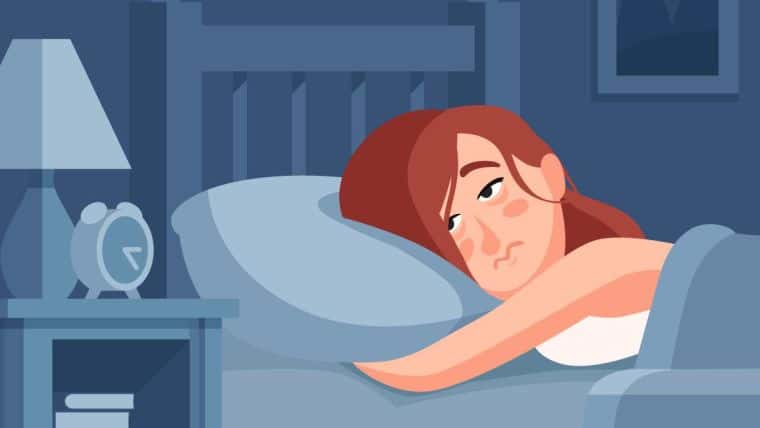Even though you’re not awake when asleep, your brain is. Contrary to popular beliefs, sleeping does not mean inactivity for the brain but rest. It is during sleep that your brain actually begins its job of cleaning out, regenerating, and healing, without which stability of working throughout the day becomes impossible.
Napping is indeed a lost art and if you think five or four hours a day will keep you robust, get ready to be shocked!
Is there a sleep cycle?
In adults, a new sleep cycle begins about every 90 minutes, with each of these phases just mentioned occurring. Most of the time we sleep we are in light sleep, which enables us to transition to the restful sleep phases. At the beginning of the night, the cycles have a high proportion of deep sleep and few REM phases. However, the REM phases increase during sleep. This means sleep is easier from the beginning to the end.
What happens in your brain during sleep
Our sleep is a comprehensive working time of the body where four different transitions to and from light to deep sleep occurs. In order to experience a great day, you should have a deep and comfortable sleep.
Even though you’re not awake when asleep, your brain is. Contrary to popular beliefs, sleeping does not mean inactivity for the brain but rest. It is during sleep that your brain actually begins its job of cleaning out, regenerating and healing, without which stability of working throughout the day becomes impossible.
Napping is indeed a lost art and if you think five or four hours a day will keep you robust, get ready to be shocked!
Why? During sleep, our brains work its way through four stages-
· Stage 1:
Consisting of ten percent of your total time, Sleep Stage One is a stage where your body is not asleep yet. You experience muscle relaxation and contraction while the brain waves begin to descend.
·Stage 2
Consisting of 45% to 50%, Stage Two of Sleep results in slowing down of brain waves alongside slower heartbeat rate and temperature deduction.
· Stage 3
Consisting of 20% of the total sleep duration, Stage Three of sleep is where your body enters deep sleep. Your brain waves change into theta and delta waves from Alpha and Beta waves. It is difficult for a person to wake up as the blood pressure and breathing rate drop.
·Stage 4
The restorative phase of sleep, REM sleep consists of 20-25% where your heart rate shoots up along with the blood pressure and dreams begin to surface. Any external activity is often incorporated into the dream without waking up the sleeper during this stage of sleep.
4 Shocking, yet Vital Things that Happen only during Sleep
Ever wondered what really happens in your brain when you don’t sleep or miss a sleep cycle? You can even lose your cherished memories if you attempt clubbing two days’ sleep into one day. Sleep Cycle is connected to the healthy working of all your body parts, as sleep is the medicine for your brain as well as the body.
· Memories Lost for Ever
It is during sleep that a hormone known as acetylcholine, which regulates memories as well as lucidity in dreams, stops secreting when you don’t sleep regularly. When acetylcholine is destroyed, the chances of Alzheimer’s disease also increase.
· Everyday Chaos Repair
Our body has to eject toxins, dead cells, pollutants, allergens, and dirt or oil to renew the cells. Without sleep, every sense including sight, smell, touch, audibility, and taste are disturbed, leading to confused responses from the user throughout the day.
· Emotional Captivity
Freedom from stress is the symptom of emotional freedom. When you don’t get enough sleep, you will end up experienced several episodes of emotional trauma and turmoil during the day. From mood swings to behavioral changes, there are many threats to your emotional freedom.
· Drainage from the body begins to heap up and rot
Much like the drainage system of our cities, the brain helps to drain the waste materials of the body when you sleep. Missing sleep leads to the heaping up and overproduction of the hormone that triggers Alzheimer’s named Amyloid Plaque.
What gets into the long-term storage?
In particular, emotional information and information about which we already have prior knowledge are transferred into long-term memory. Special learning content such as vocabulary, data, or even mathematical rules can be easily saved.
Many people are probably familiar with this from their school days. Once again you started learning too late and in the evening you sit in front of your vocabulary.
After you are too tired to continue learning, you have by far not memorized all of the vocabularies. You went to bed. And it seemed like a charm almost every time – when you got up, almost all of the vocabulary was available. So we learned in our sleep.
Before You Go …
If you want to have good sleep health, you must follow the below table rigorously:
- Babies: 16 Hours
- Children: 9-16 hours
- Teenagers: 9 Hours
- Adults: 7-8 Hours
- Pregnant Women: 12+
- Older People: Short
Good Luck!

